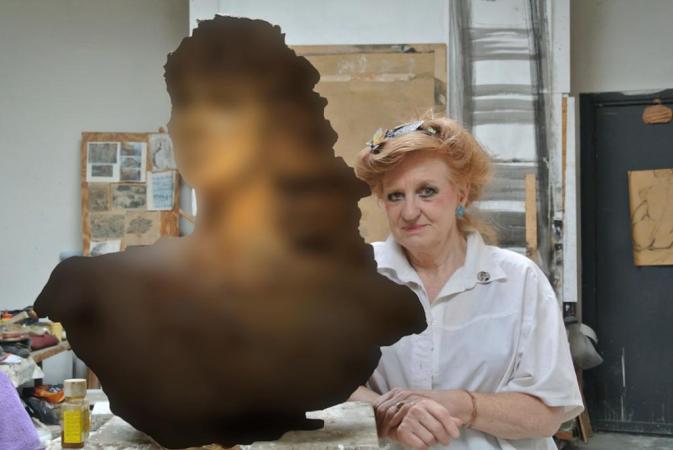When Ingrid Rollema, the artist of the Bertha von Suttner buste to the municipality of The Hague, first started her work process she approached former ICJ Judge Pieter Kooijmans (1933-2013) for advice on the project. Together they not only discussed Bertha von Suttner but also spoke about international law and a virtual version of the ICJ. This month, she shares with us her thoughts about her memorable conversation with former ICJ Judge and Professor Pieter Kooijmans.
'Creating a statue of Bertha von Suttner, the spiritual mother of the Peace Palace, is a challenge'. Bertha von Suttner was a colorful person and a woman ahead of her time. 'Disarmament' is the essence of her vision, which till this day is heavily contested.
I am a visual artist as well as an international law jurist. Professor Pieter Kooijmans was one of my professors in Law School. Professor Kooijmans always held a special place in my heart and my life. When I was commissioned by the Carnegie Foundation to make the statue of Bertha von Suttner for the Citizens of The Hague, I thought: 'This is something I want to discuss with this former judge of the International Court of Justice'. Our conversation immediately turned to the developments in international law. An art studio is an interesting location with endless possibilities.
'How interesting would it be to create a virtual International Court of Justice', he lamented. First we have to start by asking the same question again: 'What is right and what is just?'. 'Once we have answered that question, we can start building a virtual ICJ.´ Changes are so quick and adaptations so slow that the present ICJ must be apprehensive not to administer justice to a world that does not exist anymore'.
We got excited about how we could visualize a virtual ICJ as a piece of art. We went back to the initial reason of our conversation: a statue of Bertha von Suttner. 'Ah, Bertha von Suttner becomes more interesting when we question who'd she be in the present time?' 'What kind of woman would she be today? 'Believe me, Ingrid, she was not an easy woman', Professor Kooijmans said. I think she would certainly be a member of Amnesty International, but Greenpeace? I doubt that. She would have to revise the ideals she shared with Theodor Herzl'. He reflected on this. 'A fearless lady with a bright view of the future, for people to identify themselves with when they have to make essential choices in their lives about what is right and what is just. If you keep that in mind you are on the right path. It will not be easy and please know: Bertha = controversy!'.
As always, his remarks were crystal-clear and inspiring. We parted with the intention to continue writing about a virtual ICJ. I felt inspired by his questions. 'How lovely the arts are to theorize almost without boundaries, my counselor sighed'. You could say, with modern knowledge you can create something new in order to repair misjudged situations from earlier in your life.
We had no idea that this was to be our last conversation. I’m very sad because during our meeting in my studio the future seemed infinite.
